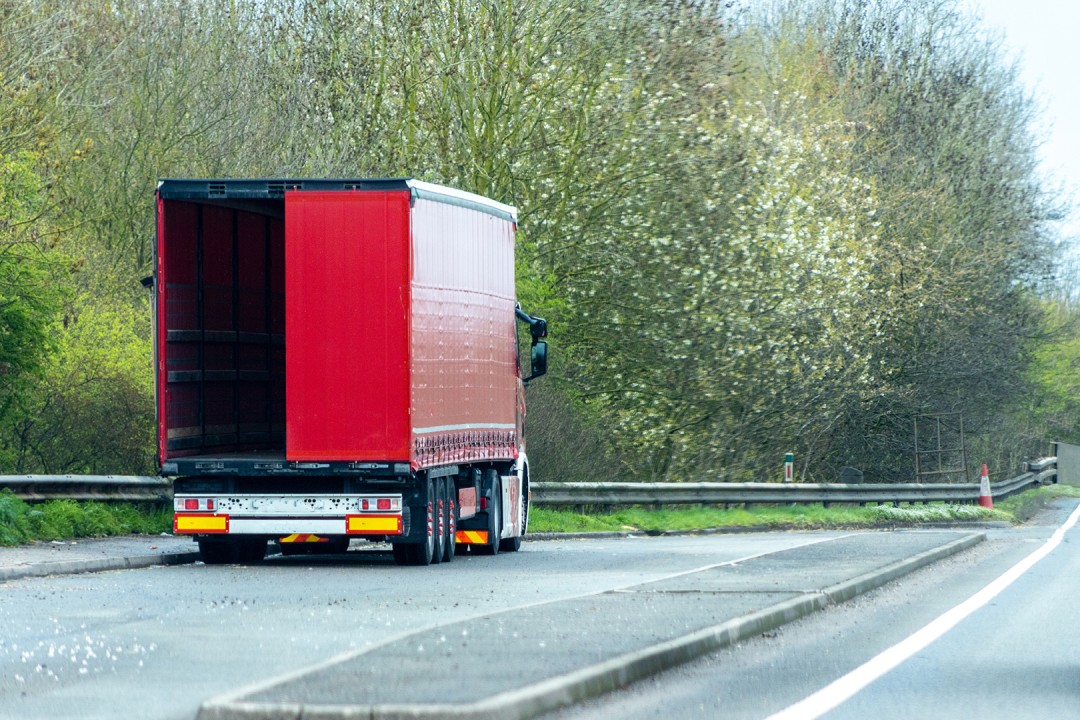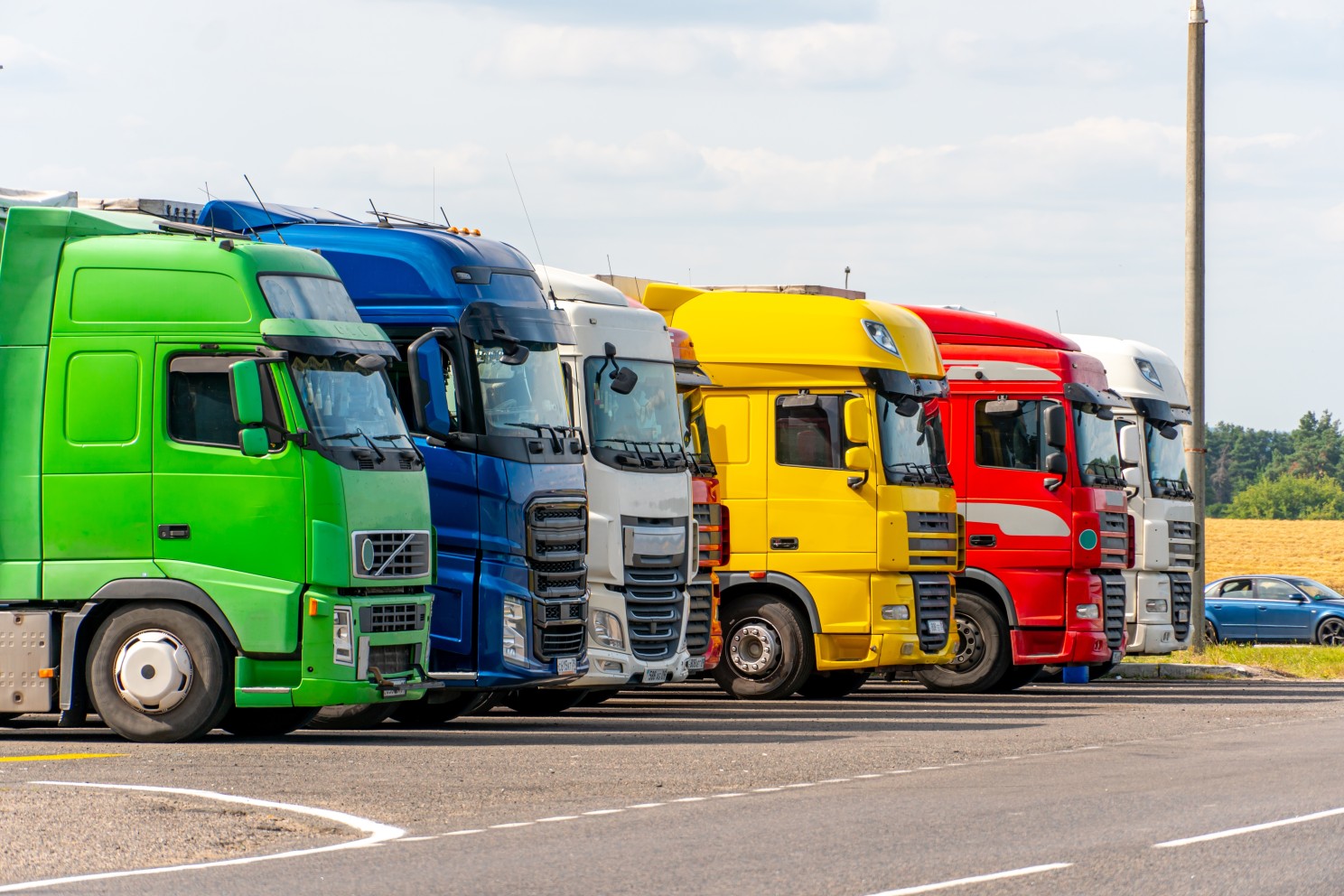
Susie Jones
Les automobilistes préfèrent-ils les aires de repos aux stations-service ?
Créée: 19/08/2024
•
Mise à jour : 19/08/2024
En 2022, le Royaume-Uni a enregistré plus de [5 000] (https://x2uk.com/hgv-cargo-thefts-on-the-rise/) signalements de délits liés au transport de marchandises, ce qui représente une perte d'environ 66 millions de livres sterling. L'augmentation de la criminalité liée au fret constitue une menace grave pour les chaînes d'approvisionnement, les entreprises et les consommateurs, ce qui suscite de vives inquiétudes dans le secteur du transport routier.
Selon un rapport publié par la police du Cambridgeshire, [46 %] (https://www.cambstimes.co.uk/news/23740469.cambridgeshire-police-record-380-per-cent-rise-hgv-crimes/) de tous les vols de cargaison se produisent dans les rues et sur les aires de stationnement, et 27 % dans les stations-service. Malgré cela, l'écoute sociale montre que de nombreux conducteurs continuent de se garer sur les aires de stationnement pour diverses raisons.
Les problèmes liés au stationnement dans les parkings relais
Pour les conducteurs, le stationnement de nuit dans une aire de repos est souvent l'option la plus simple et la plus économique. Cependant, elle présente plusieurs inconvénients qui peuvent avoir un impact négatif sur la santé mentale et la sécurité du conducteur.
Installations - Les conducteurs ont besoin de plus d'installations, telles que des toilettes, des douches et de la nourriture. Le manque d'installations propres peut accroître l'inconfort et avoir un impact négatif sur le sommeil, la concentration et la santé mentale.
Sécurité des conducteurs - Le stationnement sur les aires de repos présente un risque supplémentaire pour la sécurité des conducteurs. Une étude de l'[AA] (https://www.transport-network.co.uk/Highways-AA-warns-of-danger-lurking-in-lay-bys/7695#:~:text=The%20Too%20close%20for%20comfort,the%20vehicles%20that%20are%20hit.) a révélé que les deux tiers des accidents mortels impliquant des véhicules à l'arrêt sur une route à deux voies se produisaient sur des aires de stationnement, plus de la moitié des véhicules touchés étant des poids lourds.
Vol de marchandises - Le secteur a connu une augmentation de [380%] (https://www.cambstimes.co.uk/news/23740469.cambridgeshire-police-record-380-per-cent-rise-hgv-crimes/) des vols de marchandises entre juin et juillet en 2023, ce qui souligne la nécessité de disposer de parkings sûrs et sécurisés. Les voleurs opportunistes ciblant les aires de repos, les conducteurs risquent de perdre leur cargaison et les flottes de perdre des millions de livres sterling.
Pourquoi les conducteurs se garent sur des aires de repos
Malgré les risques, l'écoute sociale menée via [Facebook] (https://www.facebook.com/photo/?fbid=768988658604142&set=a.482170237285987&locale=en_GB) a suggéré que 70 % des conducteurs étaient moins enclins à choisir un parking pour camions plutôt qu'une aire de stationnement, et ce pour plusieurs raisons :
Sécurité
Les réactions des médias sociaux suggèrent que 43 % des chauffeurs routiers choisissent de ne pas se garer dans un relais routier ou une station-service en raison de l'absence de mesures de sécurité.
"Je ne me gare que sur des aires de repos ou dans des zones industrielles. Lorsque je me suis garé sur des aires de service ou des aires de repos, on m'a coupé les rideaux", déclare Luke, chauffeur routier.
La sécurité des relais routiers au Royaume-Uni est un sujet de discussion brûlant dans le secteur du transport routier, les chauffeurs demandant au gouvernement de les aider davantage à mettre en place des installations de sécurité supplémentaires. D'après les réactions précédentes, les chauffeurs souhaitent que la [taxe sur les poids lourds] (https://motortransport.co.uk/industry-news/drivers-want-hgv-levy-funds-spent-on-truck-stops/17658.article) soit investie dans des parkings plus sûrs, plus hygiéniques et plus abordables.
Sur les médias sociaux, 59% des chauffeurs routiers ont déclaré que le Royaume-Uni ne disposait pas d'un nombre suffisant de relais routiers sûrs et sécurisés par rapport à l'Europe. Cette opinion est confirmée par les réactions au [SNAP's Truck Park Tour] (https://snapacc.com/truckpark-tour-2023/), où 31 % des chauffeurs européens ont déclaré qu'ils bénéficiaient le plus de l'accès aux sites exclusifs et sécurisés de SNAP. L'organisation de sécurité TAPA est largement reconnue en Europe, de nombreux sites étant certifiés de niveau 1, 2 ou 3.
En revanche, le Royaume-Uni ne compte que deux sites certifiés TAPA, accrédités par des auditeurs agréés de niveau 3 formés par SNAP PSR. Formula Services et The Red Lion possèdent tous deux une certification de niveau 3. Une infraction a été signalée à The Red Lion et aucune à Formula Services, bien que ce dernier soit situé dans une zone à forte criminalité.
Markus Prinz, directeur principal des normes, de la formation et de la certification à la TAPA, explique : "Nous soutenons pleinement toutes les activités visant à garantir l'efficacité et la sécurité des infrastructures de stationnement pour les camions et à améliorer la sécurité des chauffeurs de camions, des véhicules et des marchandises. En fournissant un écosystème ouvert pour l'optimisation technique et économique des parkings sécurisés pour camions, nous pensons que la transition vers des parkings sécurisés pour camions peut être stimulée."
Réticence de l'entreprise
30 % des conducteurs ont déclaré que leur société de flotte n'était pas disposée à payer pour les relais routiers ou les stations-service. Un conducteur a expliqué :
"Malheureusement, moins d'entreprises paient pour le stationnement de nuit, les établissements restent ouverts de justesse, réduisent leur personnel pour faire face aux factures, et le nombre de places de stationnement diminue".
Arrêts de camions à capacité maximale
"On peut savoir quels arrêts sont sécurisés, car ils sont pleins à partir de 18 heures.
70 % des chauffeurs ont fait part de leurs frustrations concernant les aires de stationnement sécurisées qui sont à pleine capacité, ce qui ne leur laisse pas d'autre choix que de se garer sur une aire d'attente. Les réactions à la tournée des aires de stationnement pour camions ont été du même ordre : de nombreux chauffeurs ont exprimé leur inquiétude quant au fait que les aires de stationnement au Royaume-Uni étaient pleines avant leur arrivée.
Les données de l'enquête [de TfL] (https://assets.publishing.service.gov.uk/media/6454ab292f62220013a6a572/national-survey-of-lorry-parking-2022-part-one.pdf) 2022 sur le stationnement des camions indiquent que malgré une augmentation de 12 % de la capacité sur site entre 2017 et 2022, elle n'est pas suffisante pour supporter l'augmentation de 21 % du nombre de véhicules au cours de la même période.

Réduire le stationnement de nuit sur les aires de repos
Financement public
18 % des conducteurs souhaitent que le gouvernement finance davantage les installations de sécurité. En septembre 2023, le ministère des transports a accordé [8 millions de livres sterling à 39 installations routières] (https://www.gov.uk/government/news/better-facilities-for-lorry-drivers-as-winners-of-8-million-funding-revealed) dans toute l'Angleterre pour améliorer les installations et la sécurité. L'équipe Access & Security du SNAP commence à soutenir les entreprises qui ont obtenu un financement en mettant en œuvre leurs améliorations. Un financement supplémentaire à hauteur de 100 millions de livres est disponible jusqu'en 2025 dans le cadre du programme gouvernemental de cofinancement.
Installations de sécurité
Pour offrir un espace sûr et sécurisé aux chauffeurs routiers, les relais routiers peuvent investir dans des installations de sécurité robustes - des produits tels que la vidéosurveillance, la RNA, l'interphonie, les barrières et les kiosques renforcent la sécurité du site et dissuadent les activités criminelles. [SNAP Access & Security] (https://snapaccessandsecurity.com/) associe des produits de sécurité sur mesure et une expertise du marché pour protéger les personnes, les véhicules et le contenu des relais routiers.
Les chauffeurs de camion peuvent-ils dormir sur le bord de la route au Royaume-Uni ?
Depuis le 1er novembre 2017, la DVSA a mis en œuvre de nouvelles règles et des réglementations concernant les conducteurs qui se reposent dans des endroits tels que les zones résidentielles et les aires de repos. Les conducteurs peuvent se voir infliger une amende allant jusqu'à 300 livres sterling s'ils passent leur pause dans une aire de repos ou sur le bord de la route.
Comment les chauffeurs routiers restent-ils éveillés lorsqu'ils conduisent ?
Les conducteurs de camions doivent respecter les règles de rupture du [tachygraphe] (https://snapacc.com/newsroom/tachograph-rules-made-easy/) pour leur sécurité et celle des autres usagers de la route. L'objectif d'un tachygraphe est de prévenir la fatigue des conducteurs et de s'assurer que les conducteurs et les employeurs respectent les règles.
Malgré cela, [prévenir l'ennui et la fatigue sur la route] (https://www.linkedin.com/pulse/you-bored-road-snap-account%3FtrackingId=aJQJX0v5Sj%252BTVlKI%252FgRkbA%253D%253D/?trackingId=aJQJX0v5Sj%2BTVlKI%2FgRkbA%3D%3D) est un défi pour de nombreux conducteurs et peut affecter leur bien-être. La plupart des conducteurs préfèrent écouter de la musique et des podcasts lorsqu'ils sont sur la route et s'épanouissent grâce aux interactions sociales avec d'autres conducteurs dans les relais routiers et les stations-service.
Les chauffeurs de camion sont-ils autorisés à avoir des passagers au Royaume-Uni ?
Un chauffeur de camion passe en moyenne 12 heures par jour au volant. Pour lutter contre la solitude et l'ennui, les conducteurs peuvent transporter des passagers s'ils respectent les règles spécifiques définies par la FMSCA. Les conducteurs doivent obtenir l'autorisation écrite de leur entreprise en soumettant une demande de transport de passagers - cette demande doit préciser la durée du voyage et les dates.
Les exigences communes sont les suivantes : - Les passagères ne doivent pas être enceintes
Ils ne doivent pas souffrir de problèmes de santé graves ou chroniques.
Ils doivent être âgés de dix ans ou plus
L'assurance maladie est obligatoire.


